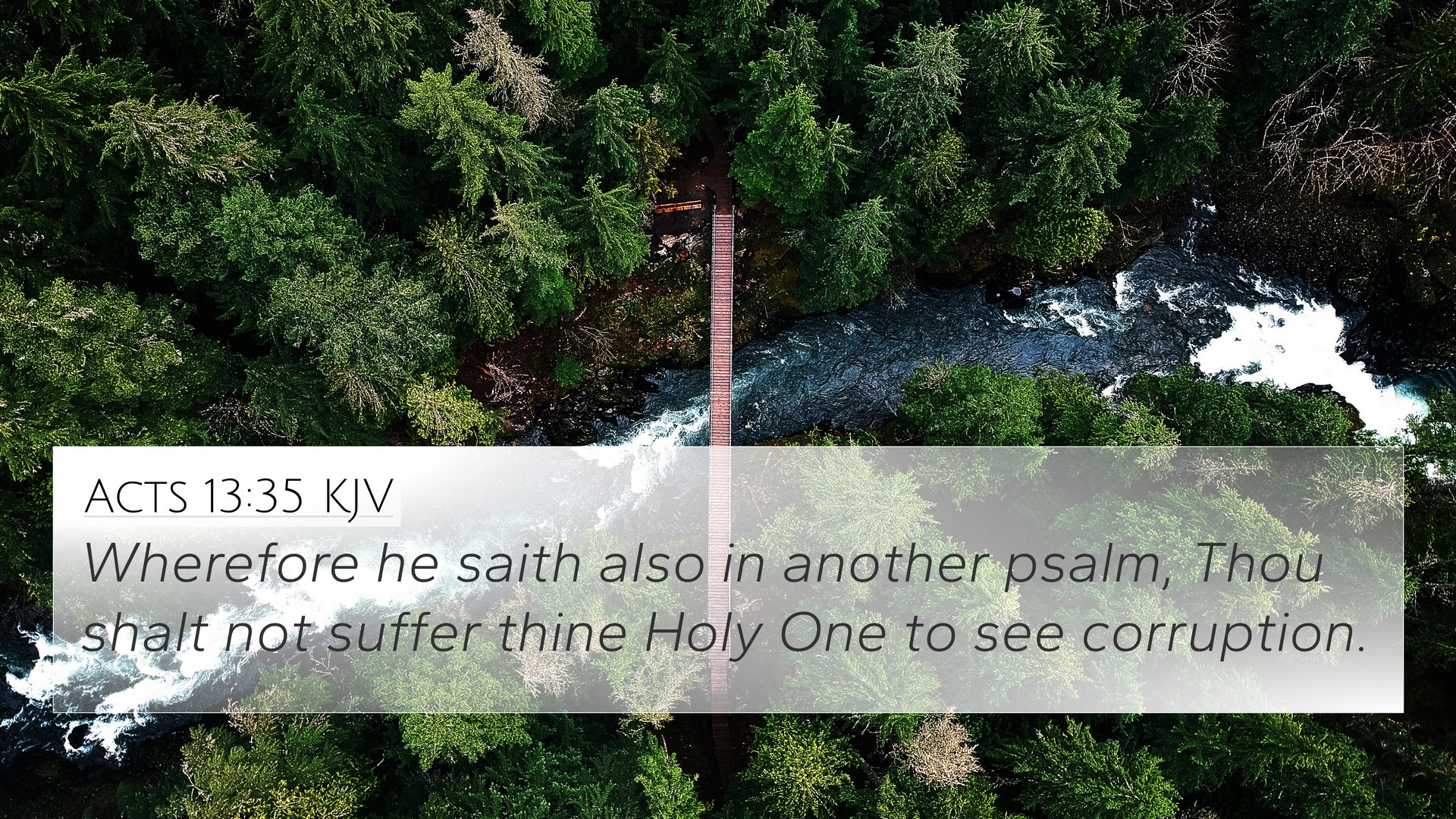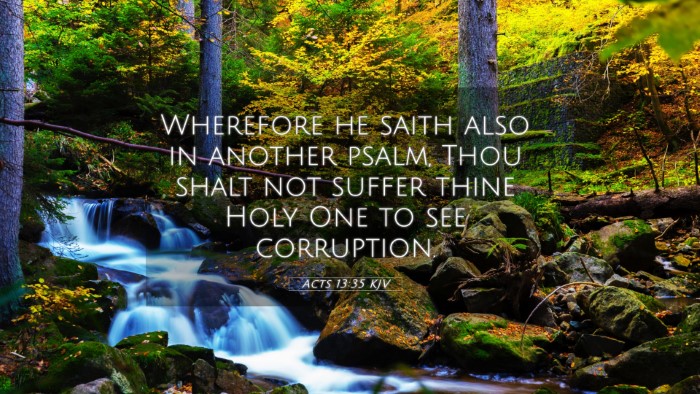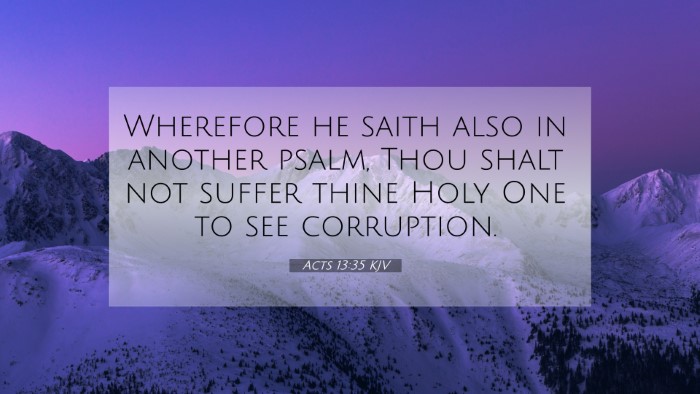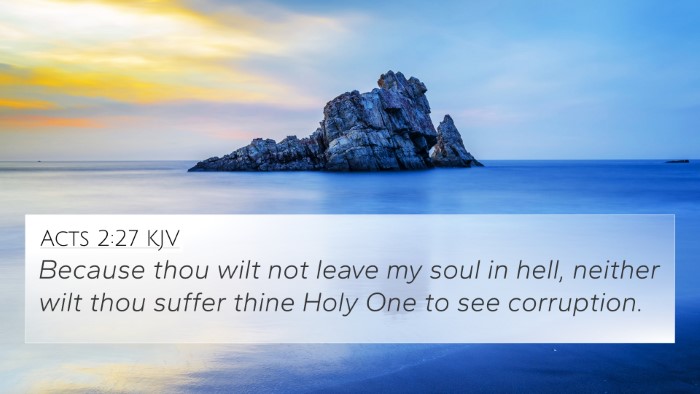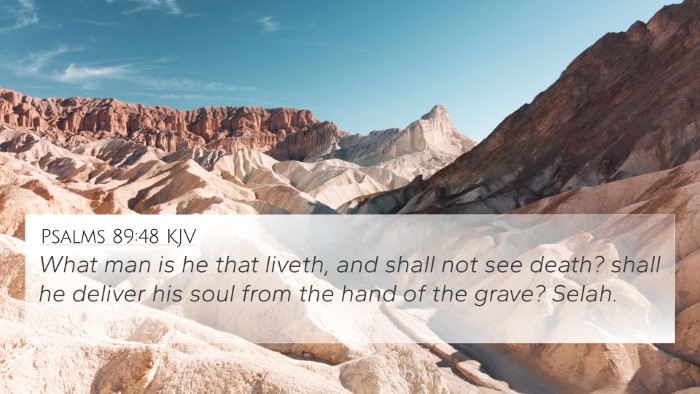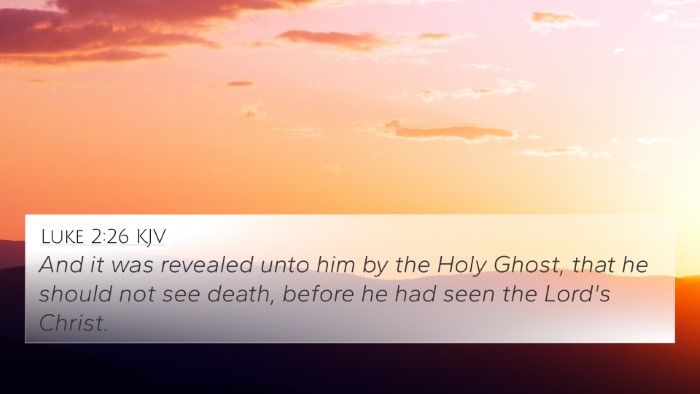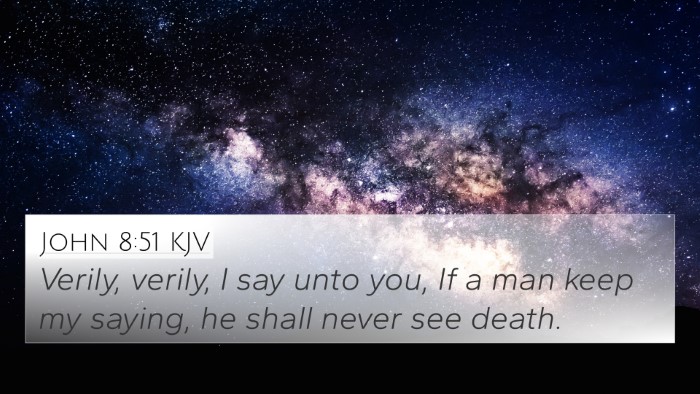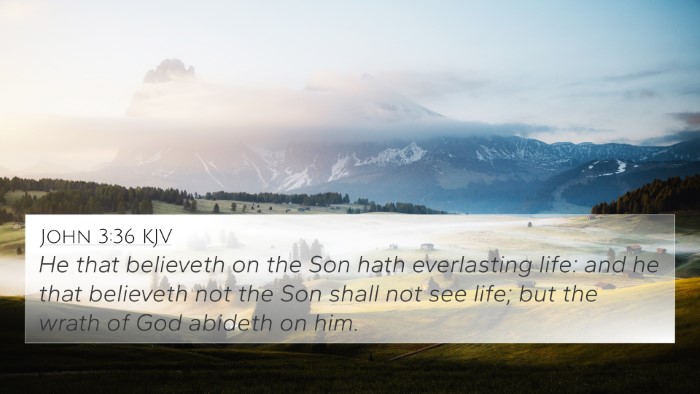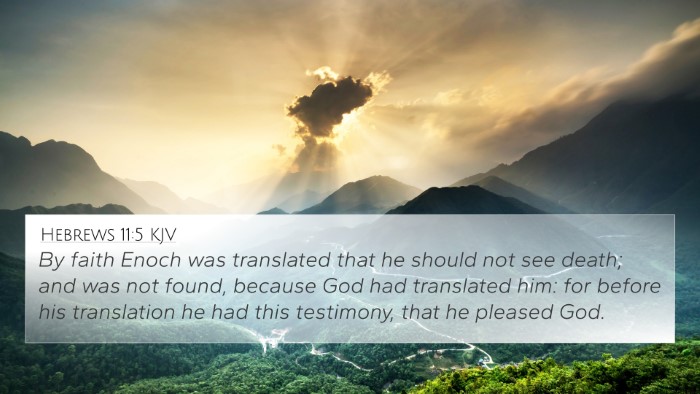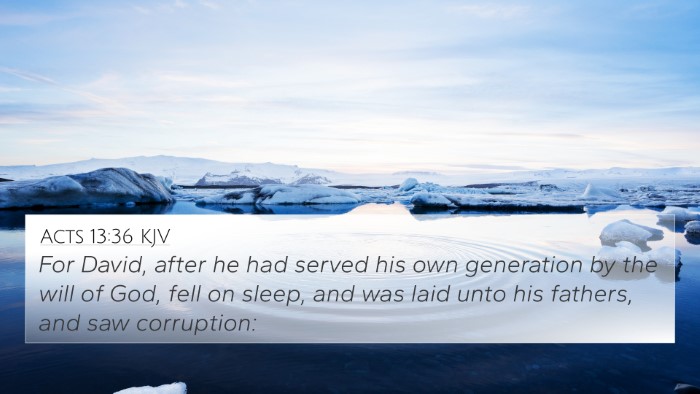Acts 13:35 is a significant verse in the New Testament that speaks profoundly about the resurrection of Jesus Christ. It reads:
"Therefore, He says also in another psalm, ‘You will not allow Your Holy One to see corruption.’”
This verse underscores the assurance of life after death and the promise of resurrection. Below, we explore its meaning and implications as interpreted by renowned biblical commentators.
Summary of Insights
Various public domain commentaries provide valuable insight into Acts 13:35. Here, we distill the wisdom of noted scholars including Matthew Henry, Albert Barnes, and Adam Clarke:
Matthew Henry's Commentary
Matthew Henry emphasizes the significance of Jesus as the Holy One of God. He notes that the reference to corruption relates to the decay that occurs after death. The resurrection of Christ is highlighted as fulfillment of the prophetic Scriptures, affirming that Jesus, being sinless and divine, would not succumb to the natural decay that follows human death.
Albert Barnes' Notes
Albert Barnes elaborates that this verse quotes from Psalm 16:10, linking it directly to Jesus' resurrection. He asserts that this prophetic reference reinforces the early church's understanding of Jesus' victory over death and the promise that believers, too, would share in this resurrection, thus emphasizing the theme of eternal life.
Adam Clarke's Commentary
Adam Clarke provides further exposition by discussing the context of Psalm 16. He interprets the verse as a declaration that while death is a certainty for all, the tyranny of death did not hold sway over Jesus. According to Clarke, this should bring comfort to Christians, pointing to the hope of resurrection in Christ and the assurance of redemption for the faithful.
Connections to Other Scriptures
Acts 13:35 draws important connections to several other Bible verses that enhance our understanding of its message:
- Psalm 16:10: "For You will not abandon my soul to Sheol, nor let Your holy one see corruption." This Old Testament verse is directly quoted in Acts, illustrating its fulfillment in Christ.
- Romans 6:9: "We know that Christ, being raised from the dead, will never die again; death no longer has dominion over him." This passage reaffirms the theme of Christ's victory over death.
- 1 Corinthians 15:20-22: "But in fact Christ has been raised from the dead, the firstfruits of those who have fallen asleep." This emphasizes the significance of Christ’s resurrection as the precursor to believers' resurrection.
- Hebrews 13:20: "Now may the God of peace, who brought again from the dead our Lord Jesus..." This verse connects God's power in raising Jesus with the themes of resurrection and eternal life.
- Matthew 28:6: "He is not here, for He has risen, as He said. Come, see the place where he lay." This strengthens the message of resurrection and fulfillment of prophecy.
- Acts 2:27: "For You will not abandon my soul to Hades, or let Your Holy One see corruption." Peter quotes this in his sermon, connecting Jesus’ resurrection to prophecy.
- John 11:25-26: "Jesus said to her, 'I am the resurrection and the life...'" This passage expands on the promise and hope found in Christ's resurrection.
- Philippians 3:21: "Who will transform our lowly body to be like his glorious body..." This highlights the transformative aspect of the resurrection for believers.
- Revelation 1:18: "And the living one. I died, and behold I am alive forevermore..." This verse is a declaration of Christ’s eternal life, reinforcing the message of Acts 13:35.
- Isaiah 53:10: "Yet it was the will of the Lord to crush him; he has put him to grief..." This verse foreshadows the suffering and resurrection of Christ.
Thematic Analysis
The primary themes emerging from Acts 13:35 involve:
- Resurrection: A central tenet of Christian faith, affirming that Jesus rose from the dead.
- Fulfillment of Prophecy: The connection made with the Psalms highlights God's plan through Scripture.
- Hope for Believers: The resurrection of Christ promises eternal life for those who believe.
Cross-Referencing Tools and Resources
When studying Acts 13:35 and its connections, several tools can enhance your understanding:
- Bible Concordance: A handy reference to find verses by keywords.
- Cross-Reference Bible Study: A methodical approach to exploring related verses.
- Comprehensive Bible Cross-Reference Materials: Resources that compile links between verses for deeper study.
Conclusion
Acts 13:35 not only underscores the pivotal truth of Jesus’ resurrection but also serves as a springboard for exploring inter-Biblical dialogue and connections between verses. Through a detailed comparative Bible verse analysis, believers can gain a richer understanding of their faith and the promises God provides through His Word. Engaging in this thematic Bible verse connections allows us to recognize the cohesive narrative of redemption woven throughout Scripture.
